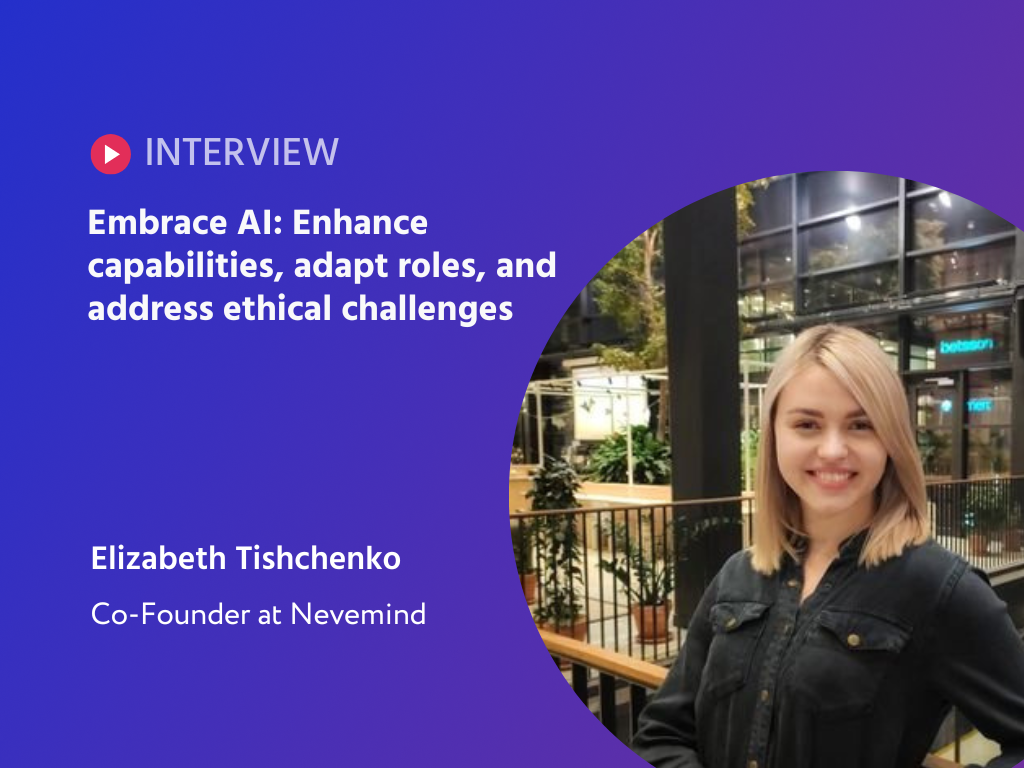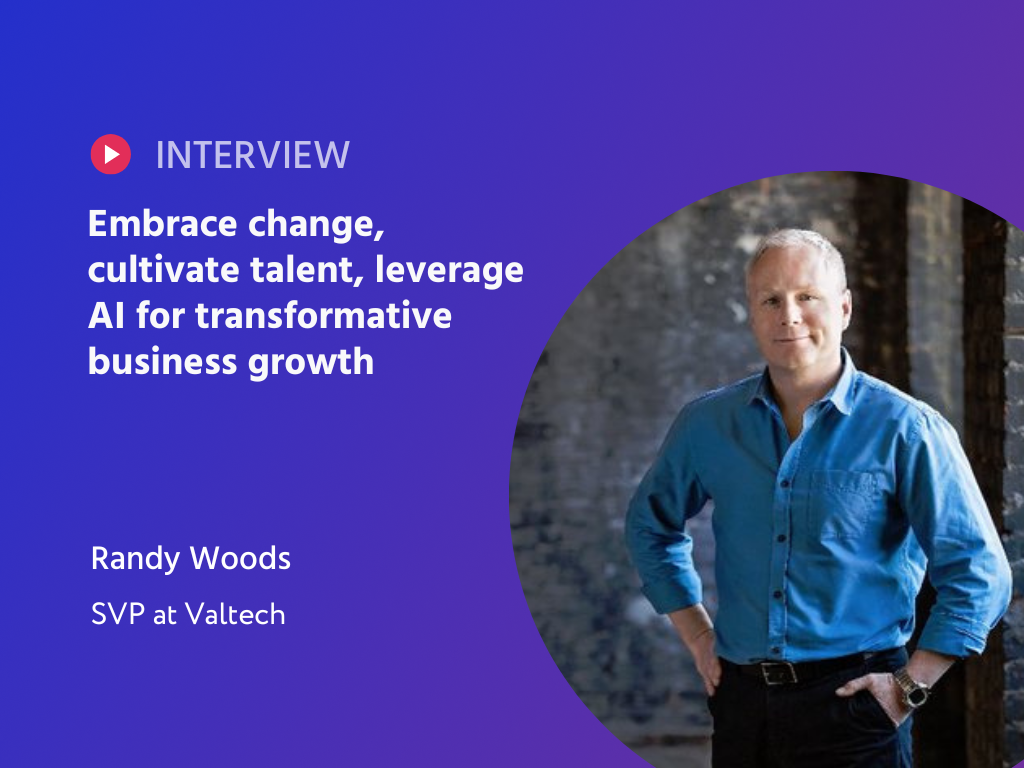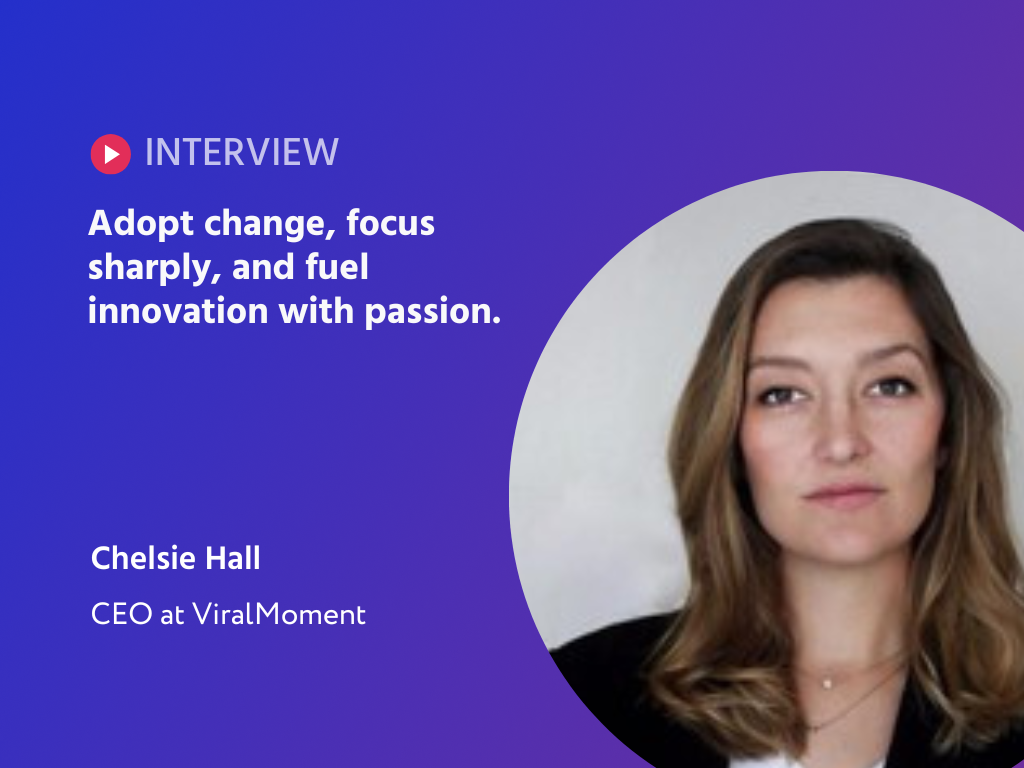In this week's episode of Bright Founders Talk at Temy, we dive into the insightful world of Deborah Acosta. As the CEO of WeAccel and a co-host of Smart City Diaries Podcast, Deborah's influence in the tech world reaches beyond the conventional boundaries of leadership.
Deborah is not just an innovator and trailblazer but also a celebrated community leader, a resolute feminist, and an effective public speaker. From enhancing sustainable economies in cities to helping companies attract and retain female employees, she's made significant strides in a myriad of arenas.
In our enlightening conversation with Deborah, we cover various intriguing aspects of her personal and professional journey. From her experiences in managing multiple roles to the immense impact of technology on the future of our cities, we unpack it all. This is an interview that truly elucidates the intersections of technology, city life, and gender inclusivity. Join us as we uncover the story of Deborah Acosta, her role at WeAccel, and the fascinating world of smart cities.
Bright Minds, Brilliant Cities: Deborah Acosta Reveals the Impact of Technology on Urban Life
Bathed in the morning sun of California, Deborah Acosta, a blend of a trailblazing tech visionary and impassioned public speaker, sat down for an engaging chat on the Bright Founders Talk at Temy. Armed with her dual titles as the CEO of WeAccel and co-host of the Smart City Diaries podcast, Deborah shared how her journey traversing these roles has significantly altered her personal and professional perspectives.
"Working with younger people, especially millennials and Gen Z, opened my eyes to their thirst for knowledge," Deborah reflected, citing the change in her personal perception towards the younger generation. Undeniably, her professional experiences in the tech sphere and with startups weren't alien to her. However, her interactions with the youth uncovered the reality of a world vastly different from her own. She then gracefully borrowed a line from the renowned Brené Brown, “I’m here to get it right, not to be right”, indicating a paradigm shift in her professional journey.
Working with younger people, especially millennials and Gen Z, opened my eyes to their thirst for knowledge
The narrative shifted to her role in the Smart City Diaries podcast, an initiative born from a halted documentary project due to the pandemic. The podcast offered a brilliant solution to educate the younger generation about the nuances of concepts such as mobility, electricity, and broadband. Deborah highlighted the importance of understanding the systems we seek to transform, a mission critical to the podcast.
"In the midst of challenges and failures, we're learning to pivot, learning to be flexible, and not stay stuck on a product that we initially thought we wanted," Deborah explained, providing an enlightening glimpse into the adaptive nature of innovation. This resilient perspective applies to the imminent effects of technology on cities too, considering the projected job losses and gains due to AI and robotics.
In the midst of challenges and failures, we're learning to pivot, learning to be flexible, and not stay stuck on a product that we initially thought we wanted
Most poignantly, Deborah implored the need for guidelines and careful planning when integrating technology in society, cautioning against a reckless dive into the unknown like that of social media. "Technology has the ability to connect people," she said, noting both the promising and destructive powers of tech-based platforms. The key, as she put it, is using technology wisely.
Throughout the conversation, Deborah's passionate advocacy for knowledge, adaptability, and cautious innovation became apparent. Echoing her words, one could almost hear the weight of her most potent quote: "Technology is going to be everything to cities and the world, and how we survive climate change, and how we communicate with each other. So let's plan for it now."
Digital Twins and Predictive Analytics: Power Tools for Future Cities - An Insightful Conversation with Deborah
Speaking passionately about technology and its role in predictive analytics, Deborah elucidates the potential of digital twins - the latest buzzword in town. The exciting prospect of recreating entire cities and communities digitally to test various situations opens the door to advanced preparations and mitigations against emergencies. The goal? Prevention instead of mere reaction. Yet she maintains that as we plunge headfirst into this fascinating domain, policies must be carefully structured to safeguard privacy and security. "Data ownership and its usage is a colossal matter. It's already enormous and it will only get larger," Deborah states.
Next, we delve into the implications of technology in promoting equity and social justice. Deborah brings up a significant issue - while technology holds immense potential, it is only as beneficial as the intentions behind its programming. The challenge lies in ensuring technology, especially machine learning, is employed in a way that genuinely promotes diversity, equity, and inclusion (DEI). Deborah makes a compelling case: "To really address DEI, we need to begin at the basic level. It's about clean water, housing, food security, and access to broadband. These fundamental aspects should be a priority, as they can pave the way for faster DEI progress." Deborah's vision of aligning technological advancements with societal needs resonates deeply, demonstrating the necessity of intertwining technology with humanitarian goals.
However, this insightful conversation also unearths one significant barrier - trust. Whether it's between the government and its constituents, or across generations and genders, trust is the glue that holds society together. Without it, technology adoption becomes a daunting task. "We need to start at the ground level, building trust where disagreements exist. Only then can we meaningfully adopt technologies, because people need to know why they should trust it," she insists. Thus, rebuilding trust emerges as the key to crafting more inclusive, equitable, and sustainable cities. As Deborah succinctly summarizes, "The number one thing to work on now is trust."
The number one thing to work on now is trust
Deborah: Illuminating the Path for Women Entrepreneurs in the Age of Innovation
In her pursuit to enlighten us on the gender disparities in entrepreneurship, Deborah proffers two core challenges. "We're out there all over the place," she insists, highlighting the first struggle that women entrepreneurs face - simply being seen. Not just seen, but also heard. Her frustration echoes through the metaphorical crickets chirping in the boardroom where women's ideas are often overlooked. The other challenge? Access to investment, or rather, the lack thereof. "A small percentage of investment goes into women businesses," she laments, adding another hurdle to the already challenging race.
Pivoting from the challenges, Deborah advocates a radical revision of our educational system. "It should start in preschool," she emphasizes, proposing the integration of entrepreneurial and intrapreneurial mindsets into the early curriculum. This innovation, she believes, would fuel smaller daily revolutions on the workforce floor. In her own words, "The little innovations that happen on the floor every day - that's what makes a difference."
Not only is Deborah a dot-connector, but she's also a dream encourager. She believes deeply in the power of dreams and their ability to set the course for reality. "Little boys are said, 'Oh, you can do whatever you want in life.' But little girls are not taught that," she observes. Deborah insists that encouraging women to create their own companies is the key to a culture shift. "Let's change the culture ourselves by creating our own companies," she suggests, putting forth a narrative of empowerment and resilience.
Let's change the culture ourselves by creating our own companies
Connecting the Dots: Deborah's Symphony of Sustainable Entrepreneurship
Deborah's perspective on entrepreneurship is akin to conducting an orchestra. The art of weaving together individual elements, each with its unique sound, into a harmonious whole is an apt metaphor for her entrepreneurial journey. The process is dynamic and iterative; striking a chord here might not resonate with the instruments over there. However, these varying echoes are essential ingredients in the grand symphony of business innovation.
The first-time entrepreneur, according to Deborah, should be critical about the value their product brings to the world. "If you're at the beginning, think about whether the world really needs your product," she advises, underlining the importance of considering a triple bottom line approach. In her view, businesses should be concerned about their impact on people, the environment, and then profit. This perspective cuts through the romanticism often associated with entrepreneurship, insisting on a more practical and inclusive approach to starting a business.
Deborah encourages new entrepreneurs to brace themselves for failure and learn from it, adding, "Pivot, don't give up, pivot." To her, the entrepreneurial journey is not about proving oneself right but about getting things right. She further stresses the value of diversity, equity, and inclusion in the creation of sustainable companies. "If your company is to thrive, diversity, equity inclusion has to be part of your company ethos, right from the get start," she says. The spotlight here is on the creation of businesses that are built to last, and these, according to Deborah, require a diverse team that shares a common ethos.
If you're at the beginning, think about whether the world really needs your product
"The world belongs to those that connect the dots," Deborah quotes Steve Jobs, affirming her commitment to the creation of impactful and sustainable enterprises. She leaves us with a potent quote that encapsulates her business philosophy: "We're here to get it right, not to be right."
The world belongs to those that connect the dots




